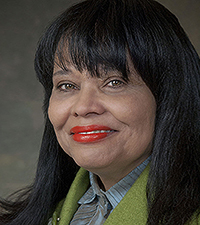

Linda Wallace
By Linda Wallace
Dear Cultural Coach: I don’t see Blacks, Latinos, Asian-Americans. I see Americans. It seems to me that it’s the communities of color that are dividing this country. Isn’t it better to be colorblind and just see a person? — An American
My Fellow American: Sometimes, acting as though we were colorblind can make others think we are terribly inconsiderate.
With an eclectic and diverse circle of friends, I sometimes take into account each one’s ethnicity, race and religion when I buy gifts, engage in conversations or celebrate the holidays.
If I attend a party at the home of a European American friend, I tend to avoid highly charged topics such as reparations, slavery and the over-representation of African-American males in the criminal justice system.
These issues, while of great interest to me, tend to put Whites in a less festive spirit. While my European-American friends appreciate and value my cultural insights, I find they are very disappointed when their guests make excuses to flee before the first course is served.
Now let’s suppose I were invited instead to an African-American dinner party. Most guests would feel quite comfortable with such an intense political dialog and might, in fact, wish to stay and chat longer.
This helps us to see that, even though we are all equal, skin color, race, religion and culture often do matter, whether we like it or not.
If we look at individuals from different cultural or racial backgrounds, but never see or acknowledge there are differences, then how can we understand who they are and why they are that way?
In a society where mass media blast messages such as “blondes have more fun,” Americans absorb societal biases automatically, at times without any conscious thought. Consider this, a study published a few years ago in the Journal of Experimental Social Psychology, found people who identified as “Black” were viewed more negatively by survey groups than that those labeled as African-American. African-Americans were perceived to have a higher socioeconomic status while “Black” people were thought of as less competent and as having colder personalities. When many of us we see a young Black man walking toward us in baggy clothes, and our brain signals “drug dealer,” we are acting upon an entrenched bias or belief, not on independent fact.
When we meet someone who is Italian and think to inquire if they are in the mob, we are reacting to a stereotype, not to the man who stands before us. Each of us has his or her own perceptions of diverse groups. When we fail to manage these biases, or stay open to the possibility our view is narrow or wrong, we end up in trouble. As we gain cultural competence, and learn to admit our biases, we can consider new possibilities. Perhaps that young Black man walking toward me is in college? As I suspend my bias, for the first time I notice the heavy book bag on his back.

















Leave a Comment